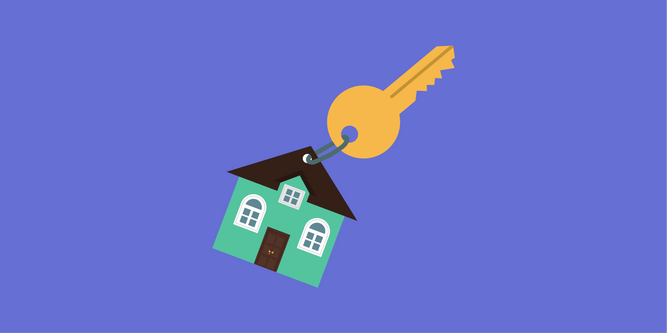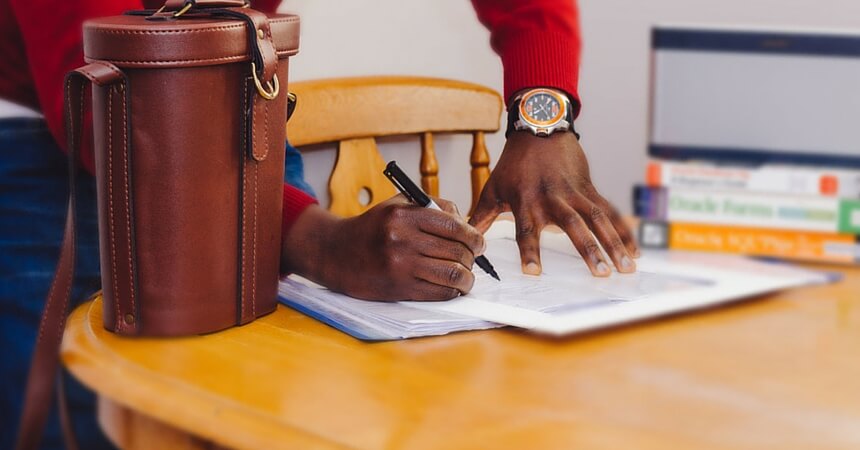
When the time finally comes and you have to make a choice between buying or renting a home, you will likely jump at the chance of buying.
Nothing beats the comfort of knowing your monthly payments are going towards ownership, rather than paying a landlord.
However, buying a home isn't as clear cut as some people imagine.
To begin with, houses are expensive. You'll need to save up a down payment, pay taxes, fees and other expenses renters don't incur. When you own your own home, repairs and anything related to the property are all completely on you.
With this in mind, what’s the better option? Should you save up for a mortgage or just stick to paying rent? They aren’t simple questions to answer.
If you're struggling to decide between renting and buying a home, here are some things you need to consider:
1. The costs of renting vs. owning
How much a house costs is the first huge factor that comes into play. And in the end, it all comes down to how much you make.
If you are overly conscious about your expenses, renting is usually the most attractive option.
The inevitable problem buying poses is how many costs you have to deal with upfront. And these can pile up to thousands of dollars within a very short time frame.
For instance, if you plan on getting a mortgage, you have to take into account the down payment, which is about 20% of the cost of the house. The more expensive the house, the higher the amount of money you need to shell out.
Add on top of that the interest, taxes and other costs, like homeowner’s insurance. In order to show your seriousness, some lenders will require earnest money to be paid, together with a home appraisal fee.
All these expenses have to be taken care of during the buying process, and can amount to as much as 2 times the down payment.
And of course, don't forget your monthly mortgage payment once you actually buy the house. Besides which, you still have to take care of recurring costs like insurance and maintenance.
In this regard, renting takes the upper hand since it's able to eliminate most of these costs altogether. The only cost you may be required to incur beforehand will be a security deposit.
As a renter, some places will even cover basic utilities like water, heat and gas, so you only have to worry about electric and cable/internet.
What’s more, if things break on the property you are renting, you won’t have to worry about repair costs. The landlord is responsible for that.
You also don’t have to worry about taxes, home owner's insurance and down payments. If you want to save on costs in the short-term, renting is the way to go.
2. Equity
Of all the ways you can accumulate wealth, real estate is one of the most viable options. This is thanks to the high rates of appreciation that it brings.
For instance, the average rate of return for the 1978-2004 period was 8.6%. To put things in perspective, if you were to buy a house ten years ago at $150,000 it could be worth $300,000 today.
Even better, if you own a home, you can make upgrades as you wish. This will increase its appeal and value. It’s not unheard of to make yourself millions from real estate flipping.
If building equity is what you were originally going for, renting is the worst way to approach it.
You can rent a house all your life, but all that does is increase your expenditure. Even if you improve the house, all you’re doing is benefiting the landlord rather than yourself.
However, let’s not kid ourselves too much. Every business has risk, and real estate is no different.
A great example is the 2006 real estate bubble. If you bought a home at $490,000 in 2005, the house could have lost as much as $150,000 in value by 2009.
But as with most markets, real estate usually appreciates in value in the long run. Investing in it means a few losses here and there, but the longer you hold, the higher chances of you winning.
3. Generating income
This one should probably go unsaid, but owning a home creates great potential for income. Particularly from rent.
If you own a fairly large home and you feel you’d still be just as comfortable somewhere smaller, live in the smaller, cheaper house and rent out the larger one.
Otherwise, you can rent out just a single room or two in the house you already own. The rent you earn can then be used to pay off your mortgage, taxes and homeowner’s insurance.
Keep in mind though, that renting out your house means higher maintenance costs. Renters are hardly ever careful around the house as you would be if you lived there.
Renting does the exact opposite of owning a home to your income. All you’re doing in the end is giving away your money - helping the landlord pay their mortgage and bills.
It’s not something to worry about since it does save you money and put a roof over your head. But, in the long run, you have to consider getting your own home. It’s certainly more profitable despite the expenses.
4. Freedom to move around
If you value the freedom to go live anywhere you want, renting is probably the better choice for you. That way, you can pack up your bags and move to any other location you can afford to.
Homeowners have to be more conservative with their choices. They can’t just leave the home they’ve been working all their lives to pay for.
They have to pick between paying for it and renting it out - both of which are quite long processes.
5. Increasing costs of housing
The cost of renting houses, particularly in urban areas has been rising over the last couple of decades. If you want to rent a house, keep in mind that this growth is unlikely to stop any time soon.
Besides which, landlords can raise the amount of rent on their houses any time they want to.
There’s always the choice of moving to a cheaper neighborhood, but that’s a lot of work to put up with.
6. Control over your living situation
If you rent a house, you can be evicted at literally any time in some states, as long as you’re given the mandatory 30 days’ notice. If you had no intentions of moving, this can be quite a troublesome issue to deal with.
You could also be limited to the kinds of activities you partake in within the house. Some landlords may prohibit smoking, drinking or even keeping pets. Others may not allow you to bring guests to your apartment.
These are all things you don’t have to worry about if you own your own house. You can do virtually anything.
Should you buy or rent your home?
In the end, it comes down to your specific needs. Consider both the financial and social aspects of your life.
If you move time to time, don't want the costs associated with homeownership and often host a lot of friends, renting is the best option. That's why a lot of young adults and people in their 20's tend to rent for a while before deciding to buy.
But if you want to plant your roots somewhere, earn equity and make a long-term investment, buying could be a better option.



